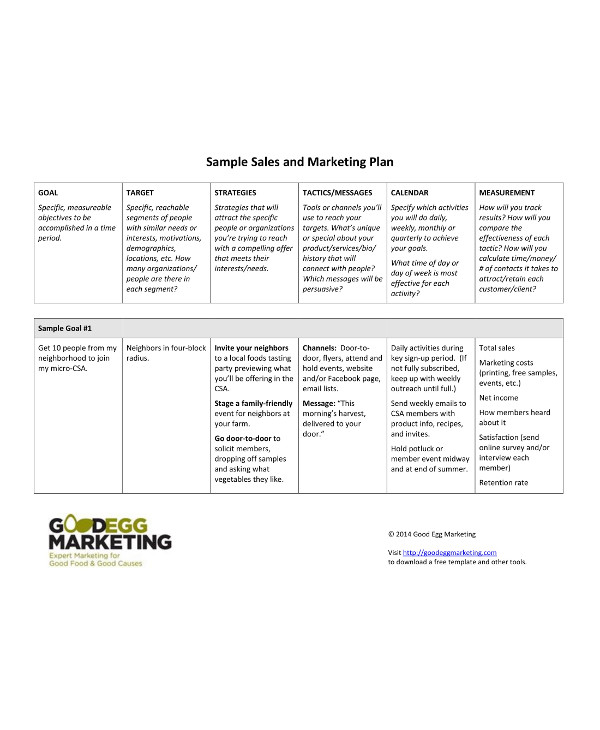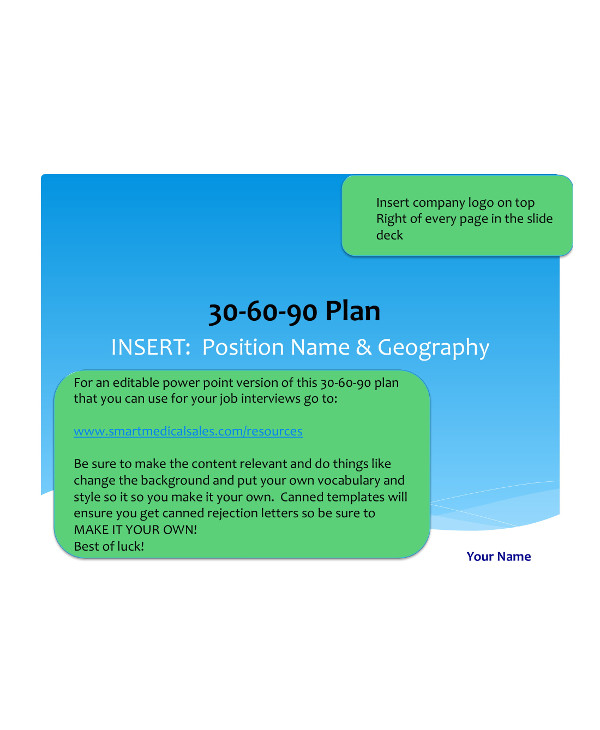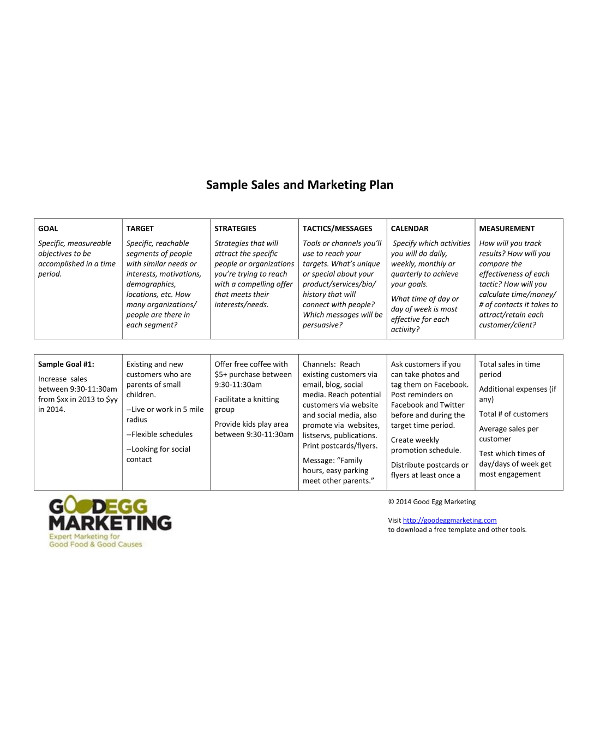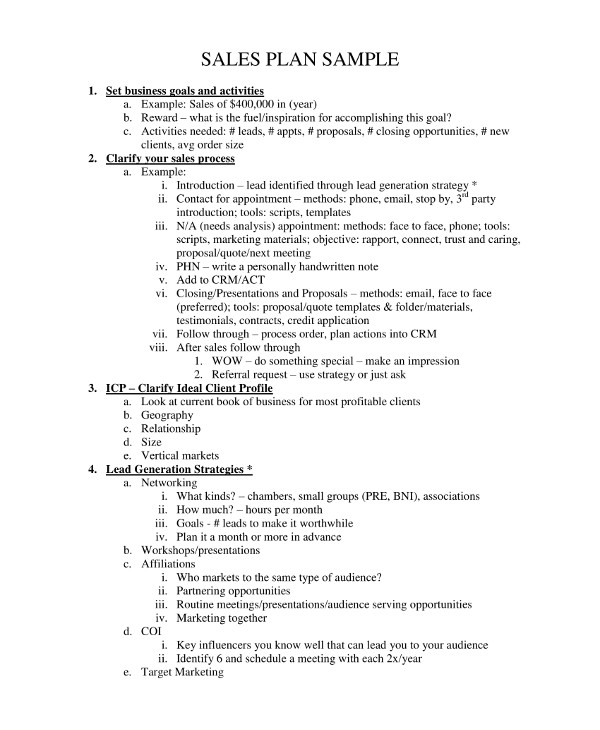90-Day Sales Plan
When you are doing business, the planning and preparation stage can consume most of your time as compared to the implementation stage. It is important that you have a very strong foundation before you step on the implementation stage. Having a frail and feeble start of your business would signify that it is going to be a hard route toward the completion of your mission and goals.You may also see 30 60 90 day sales plan examples.
Simple 30 60 90 Day Sales Plan
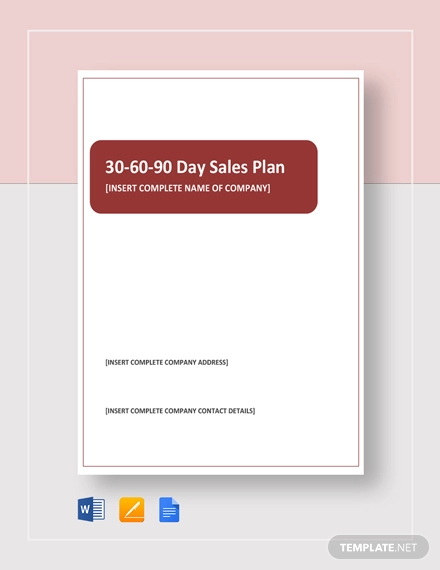
90-day Sales Plan Template

90-Day Sales and Marketing Plan for Farmers Example
However, many marketers would still find it hard to create a sales plan that would actually work.Before you go out there and market and sell your products and services, you need to have a sufficient sales plan that would cover the tasks and objectives that you are going to do and must achieve toward having a successful implementation and increase in your sales. Hence, in this article, you can find examples of different sales plan that are actually useful in your operations. Check them out in the next section.You may also see 90-day action plan examples.
90-Day Strategic and Sales Plan Example
Comprehensive 90-Day Sales Plan Example
Tactical Steps in Creating an Effective Sales Plan
The first steps in planning and preparation are indeed the toughest stage since you need to spend more time in understanding more about the goals of your entity as well as the market whom you are offering our products and service. Moreover, this is also the stage where you need to analyze trends, understand behavior, and think of some practical solutions to your weak areas.You may also see onboarding 30-60-90–day plan examples
In planning, especially in sales, you need to create sales plan that is effective in achieving your planned sales goals. You must carefully set plans in order to have a smooth ride toward what you are trying to achieve. You want that everything is set in place before your plans are placed into actions.You may also see marketing action plan examples.
Hence, your plans must be something that can be easily understood and it must specify the way on how you can achieve your desired goals. Here are some steps that you must consider when creating a sales plan.
Concise 90-Day Sales Plan Example
Detailed 90-Day Business and Sales Plan Example
Set Sales Goals
Firstly, you must set a realistic sales goal for your company. To create a realistic goal, you must base it on the size of your market, the goals of your company, as well as the experience and resources available. More often, people will fall into the pitfalls of setting goals which are as follows:
1. Wishful Thinking
Sometimes, people may tend to be over-optimistic since it is our desire for our business to grow. However, you must be practical. At the very least, analyze your last year’s forecast and results if you were being realistic on the past year. Avoid being biased by working out the level of sales you need to be viable and putting this as your figure. Remember that your goal must be something achievable.You may also see sales action plan examples.
2. Ignoring Assumptions
When you make a forecast for your sales, make sure that it is based on your assumptions about your market. If you have assumptions that the market is going to decline, you must not forecast an increased sales as this just does not make sense and is contrary to your assumptions.
3. Moving Goal Posts
There are times that you want to immediately complete your sales plan so you can right away start implementing it that you tend to be overly optimistic or pessimistic in your sales plan. In this case, avoid moving the goal post and make adjustment as this should be your benchmark to judge and know your success and failure. Instead, proceed to what you have planned and try to do better next time.You may also see hotel sales plan examples.
4. Not Consulting
Always consult the team when making decisions as it is really true that more heads are better that one. Not consulting will result to limited ideas and opinions. Maybe there are many other members of your team who probably have more knowledge about your customers. Thus, ask their opinions, give them time to talk and listen to them, and come to an agreement about your sales plan.
5. Not Asking for Feedback
If you have set your goals, you need people to challenge it and say something about it whether it might be positive or negative. Hiring an experienced person is a great idea so that someone can review your whole document for taking it company wide.You may also see 90-day workout plan examples.
6. Clearly Define Deadlines
Next, you must clearly define your deadlines for the small tasks that you are working on. These are called milestones which are helpful in tracking whether or not you are still on the right path as regards your sales plan.
You may start by referring to your last year’s performance. You may also ask your team what they are currently doing and how they manage tasks. This will give you a realistic overview on what they can potentially achieve and what milestones you are going to set.You may also see sales training proposal examples.
Finally, set individual milestones for your sales team so you can keep track on what they are doing and how close they are to achieving the desired outcome.
Discussion on 90-Day Sales Plan Example
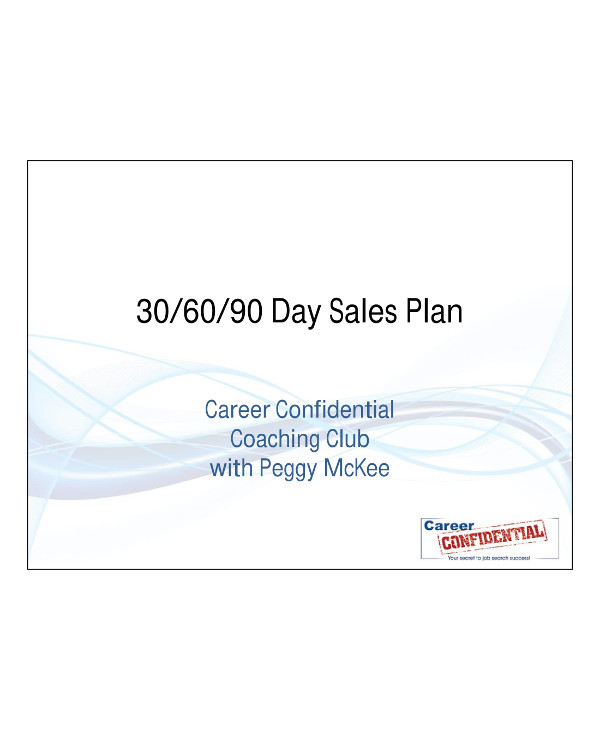
Medical 90-Day Sales Plan Example

New Enterprises 90-Day Sales and Distribution Plan Example
7. Pick a Niche to Focus On
In business, what is a niche? This is what your business specializes in, the space you are occupying, the culture of your company, your branding, your message, and a lot more. Basically, this is how people identify with you which makes them choose you over the other competitors.You may also see management plan examples.
A market niche is something that would help you focus on your strengths and what you can do and offer to your market. The more visibility you can have in your niche, the greater the chance that can hit the goals as well as milestones in your sales plan.
8. Know Your Target Market
You are just wasting your money, effort, and time when you chase the wrong person to buy your products or avail of your services. Now that you have a clear understanding of your niche, you must know and understand who your target market is. Commonly, you can set your target market based on your company size, geographical information of a group of people, their industry, their job title, and many other traits.You may also see restaurant marketing action plan examples.
When you perfectly know and understand your target market, you can use this as your advantage in creating an ideal customer profile which you can set as your basis when you want to launch a new product or services. The moment that you look up the profile, you can immediately know how and what to sell to your customer because you have already understood and know his or her wants and needs.You may also see project action plan examples.
9. Map Out the Journey of Your Customer
What do you need to know about your future customers? Here are some basic questions that you can ask:
- What do you want our product to do for you?
- For you, what are the significant features for this product?
- How much would you allocate for this?
- Currently, how are you solving this problem?
When you involve customers in your decision, it conditions their mind and makes them imagine buying for you. This is indeed a wonderful tool that does not only help you know their preferences but also help you uncover potential roadblocks.You may also see school action plan examples.
10. Fit to Your Customers’ Needs
Now that you clearly know your business niche as well as your customers and their journey, you need to fit yourselves into it in the best way possible by defining your competitive advantage over the other competitors. This is something that sets you apart from the competition. You can start by asking these questions:
- Why do customers buy from us?
- On the other side, why do customers buy from our competitors and not us?
- Why do other customers not buy at all?
- What do we need to do in order for us to be successful?
When you are describing your value proposition, it is not recommended that you will just talk about you, what you do, or what you have made. Instead, focus on what your product can do for them and what problems your products can solve.You may also see teacher action plan examples.
11. Create a List of Prospects
Since you already know the types of customers that you are after as well as the methods on how you are going to sell your products and services to them, you must also build a list of prospects to test out your theories. This will help you try and test whether your methods will work or not and whether or not you will put this section in your sales plan and put them into action.
12. Leverage on Your Current Customers
You must also use your current customers as a leverage to increase sales. Keep in touch with these customers for they can be your long-term loyal customers. They can also be a source of word-of-mouth marketing, a very effective marketing strategy in boosting your sales. For example, when they get satisfied with your products and services, they will surely recommend your store to their family and friends. Remember that people will tend to trust on the recommendations on someone they knew more than the sales pitch from a sales lady. You may also see strategic sales plan examples.
Recruitment 90-Day Sales Plan Example
Short 90-Day Sales Plan Example
13. Look for Strategic Partners
No man is an island. This is a very common saying that most of us perfectly know and understand. This is indeed true especially in the business world. You really need to look for strategic partners to work with you. They can be individuals, organizations, or companies that reach the same customers as you. They are not your competitors; instead, they are someone who offers products and services that complements yours.You may also see personal sales plan examples.
14. Measure and Monitor
Although you might think that you have a very strong foundation in your planning and preparation, you must sit back and relax after you created your plan. You must constantly monitor you and your team’s performance and observe if you are still on track toward achieving your goals.You may also see daily sales plan examples.
You must also measure how much you have achieved so far and how much more you need to do to achieve what you have planned.
A Kick Start for Your Start-up
A lot of business companies would fail during their first year of operation not because they do not have enough capital or manpower but mainly because they do not have the right and sufficient preparation and planning. Since we already know that planning and preparation are the essential foundation in achieving a successful sales implementation, it is now time to put our knowledge into action by creating a sales plan that would help us become successful in achieving our sales goals.You may also see monthly sales plan examples.
There are few simple but important points that you must remember when you want to create a sales plan, and these are as follows: set sales goals, clearly define deadlines, pick a niche to focus on, know your target market, map out the journey of your customer, fit to your customers’ needs, create a list of prospects, leverage on your current customers, look for strategic partners, and measure and monitor your sales plan.You may also see territory sales plan examples.
Additionally, with proper implementation, you can surely have a great kick start in your sales and marketing. No doubt, you will never be one of those companies that shut down during their first year of operation. With the right marketing strategy and materials, your plans would actually work toward achieving your sales goals.



